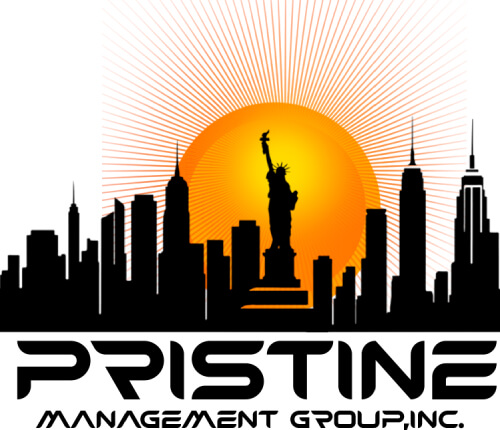Many professionals overlook the practical benefits of starting their careers in foundational roles. They often assume that entry-level jobs lack challenge, growth potential, and real impact. In reality, these opportunities rank among the most valuable stepping stones toward long-term success.
By embracing early-stage jobs, individuals learn essential competencies, build networks, and gain confidence. This article explores how beginning in a supportive environment can lead to rapid skill acquisition, meaningful relationships, and clearer career trajectories.
Laying a Strong Foundation
Entry-level opportunities offer more than a paycheck. They cultivate crucial abilities that support every future endeavor. By mastering core responsibilities and learning workplace norms, employees develop confidence and adaptability.
Honing Core Competencies
- Effective Communication Skills: Beginning roles demand clear interactions with supervisors, clients, and teammates. By crafting concise emails and participating in meetings, you learn to express ideas and listen actively, which are abilities vital across industries.
- Time Management Techniques: Juggling multiple tasks teaches prioritization and organization. When deadlines loom, you learn to plan, adjust schedules, and maintain focus, ensuring reliability and reducing stress.
- Basic Problem-Solving Abilities: Even simple challenges, like troubleshooting software glitches, prompt creative thinking. You discover how to approach obstacles logically, seek guidance appropriately, and adapt when initial solutions fail.
Understanding Workplace Dynamics
- Navigating Team Structures: You soon grasp how departments interact and where your responsibilities fit into larger projects. This awareness helps you collaborate effectively and anticipate cross-functional needs.
- Reading Organizational Culture: Each company cultivates a unique climate. By observing values, communication styles, and decision-making patterns, you learn to align your behavior and improve rapport with colleagues.
- Managing Feedback: Receiving constructive criticism early fosters resilience. You learn to evaluate performance objectively, implement suggestions, and celebrate small victories, all of which build a growth mindset.
Developing Professionalism
- Demonstrating Accountability: In entry-level roles, showing up on time and meeting expectations matters. When you complete assignments accurately and admit mistakes transparently, you earn trust and credibility.
- Cultivating a Positive Attitude: Remaining curious and open-minded contributes to a supportive environment. By volunteering for projects and offering help, you signal enthusiasm and become a valued team member.
- Adapting to Change: Organizations evolve constantly, introducing new tools or restructuring teams. Early exposure teaches you to stay flexible, learn quickly, and maintain performance under uncertain conditions.
Accelerated Learning and Growth
Hands-on experience accelerates professional development more rapidly than formal education alone. Entry-level roles place individuals at the heart of operations, pushing them to learn by doing.
Real-World Experience
- Applying Theoretical Knowledge: Classroom concepts gain context when you confront practical scenarios. By drafting reports or engaging with clients, you bridge the gap between abstract ideas and actual results.
- Encountering Diverse Challenges: From tight deadlines to unexpected client requests, you face a range of tasks that expand your toolkit. This variety builds confidence in tackling unfamiliar problems.
- Seeing Immediate Impact: When your contributions, like drafting a user guide or supporting a marketing campaign, deliver real value, you witness how effort translates into measurable outcomes. That reinforcement fuels motivation.
Structured Training Opportunities
- Onboarding Programs: Many companies offer formal orientation sessions, teaching essential processes, software, and communication channels. These structured introductions encourage team cohesion and faster integration.
- Skill-Building Workshops: Workshops on topics such as conflict resolution or productivity tools accelerate learning. By participating actively, you gain expertise valued by supervisors and peers alike.
- E-learning Modules: Interactive online courses cover industry regulations, best practices, and safety protocols. Completing these modules on your schedule demonstrates initiative and a commitment to professional growth.
Feedback and Iteration
- Regular Performance Reviews: Scheduled check-ins with managers clarify expectations and track progress. Receiving honest feedback helps you pinpoint strengths, address weaknesses, and set realistic goals.
- Peer Mentoring Sessions: Collaborating with experienced colleagues offers practical advice. As you shadow veterans, you observe strategies for handling tasks efficiently and avoiding common mistakes.
- Self-Reflection Practices: Journaling about daily wins and challenges sharpens self-awareness. By comparing your experiences to performance metrics, you learn which habits to maintain and which to adjust.
Expanding Your Network and Perspective
Building relationships early on unlocks doors to new opportunities and broadens horizons. By connecting with mentors and peers, you cultivate a support system that guides you through unfamiliar territory.
Building Workplace Relationships
- Forming Collaborative Bonds: Working on team projects introduces you to diverse personalities and work styles. By showing respect, offering assistance, and acknowledging contributions, you foster trust and goodwill.
- Attending Company Events: Participating in social gatherings, charity initiatives, or interest groups allows you to connect informally. These interactions often lead to unspoken guidance and insider tips.
- Engaging in Cross-Functional Tasks: Volunteering for projects outside your department exposes you to new skill sets. For instance, assisting the marketing team with data collection helps you understand broader business objectives.
Accessing Mentorship
- Seeking Guidance from Seniors: Identifying approachable mentors gives you access to industry wisdom. Ask for feedback during casual chats; their insights can help you avoid pitfalls and accelerate professional growth.
- Joining Formal Mentorship Programs: Some organizations pair newcomers with seasoned employees. These structured relationships provide accountability, accelerate learning, and often lead to sponsorship for future roles.
- Learning from Peers: Junior colleagues share fresh perspectives on common challenges. By exchanging tips, such as efficient software shortcuts or effective communication techniques, you create a collaborative environment.
Exploring Industry Roles
- Rotating Through Departments: If available, short stints in different teams reveal varied functions. This exposure helps you identify passions and strengths, guiding your decisions when looking into finding a new career path later.
- Attending Networking Events: Industry meetups or conferences introduce you to professionals beyond your organization. Conversations with external contacts expand your understanding of emerging trends and potential opportunities.
- Researching Adjacent Positions: By investigating roles similar to yours, you discover lateral moves that align with your skills and interests. This proactive exploration clarifies how you might transition smoothly when ready.
Positioning for Future Success
Starting at an entry-level position lays the groundwork for a compelling resume and boosts your chances of landing ideal roles down the line. By leveraging early experiences strategically, you accelerate advancement.
Building a Resume Portfolio
- Documenting Achievements: Keep track of completed projects, positive feedback, and any metrics you helped improve. Tangible results, like increasing customer satisfaction by a measurable percentage, demonstrate your impact.
- Collecting Work Samples: Save examples of deliverables, such as reports, presentations, or code snippets. When applying for new roles, these artifacts showcase your capabilities and help you stand out.
- Highlighting Soft Skills: Beyond technical tasks, emphasize communication, adaptability, and leadership moments. Hiring managers value candidates who can collaborate effectively and learn quickly.
Demonstrating Reliability and Initiative
- Volunteering for Additional Tasks: Taking on responsibilities outside your immediate duties signals eagerness to learn. Whether you offer to help with data entry or propose a small process improvement, you show managers you’re invested in the organization’s success.
- Proposing Solutions: When you identify inefficiencies like redundant paperwork or unclear procedures, suggest actionable ideas. Even minor improvements highlight critical thinking and a proactive mindset.
- Meeting Deadlines Consistently: Reliable performance builds a reputation for dependability. By submitting assignments promptly and communicating any potential delays early, you earn managerial trust and open doors for new responsibilities.
Navigating Promotions and Raises
- Understanding Promotion Criteria: Ask supervisors about key performance indicators for advancement. Clarifying expectations allows you to align tasks and development efforts with organizational goals.
- Negotiating Compensation: When performance justifies it, request a salary review. Present evidence, like expanded responsibilities or significant contributions, to support your case for a raise.
- Exploring Lateral Moves: Sometimes, moving sideways into a different team can provide faster growth. If you notice a position that aligns with your interests and skills, apply internally to broaden your experience and increase your value as a candidate for future roles, particularly appealing to a job for recent graduates.
Dispelling Common Misconceptions
Many hold outdated beliefs about early-stage positions that deter qualified candidates. By debunking these myths, we can appreciate the genuine advantages of starting humbly.
Impact on Projects
- Every Contribution Matters: Even simple tasks, like organizing data or drafting emails, form the backbone of larger initiatives. By handling these responsibilities accurately, you enable the team to function smoothly and achieve milestones.
- Visibility Through Small Wins: Delivering consistent quality on basic assignments often leads to trust for more complex tasks. Over time, this incremental progress builds a record of accomplishment that managers notice when considering project leads or special assignments.
- Opportunity to Lead Mini-Projects: As you prove reliability, supervisors may entrust you with small-scale projects, such as coordinating a client presentation or managing a minor marketing campaign. These experiences prepare you for larger leadership roles.
Compensation vs. Value
- Salary Reflects Market Entry Point: Entry-level wages may seem modest, but they represent industry benchmarks for those with limited experience. Over time, targeted skill-building often results in rapid pay increases.
- Benefits Beyond Immediate Earnings: Early roles frequently include perks like tuition reimbursement, professional development budgets, or flexible schedules. These advantages support personal growth and can offset starting salary limitations.
- Long-Term Return on Investment: The expertise and networking cultivated in foundational positions often yield higher earning potential later. By focusing on skill acquisition and relationship building, you secure a trajectory toward more lucrative roles.
Career Stagnation Myths
- Perception of Limited Growth: Some assume that entry-level jobs trap employees indefinitely. In truth, proactive individuals who seek feedback, volunteer for new challenges, and demonstrate leadership often progress swiftly.
- Belief That Education Trumps Experience: Degrees certainly carry weight, but hands-on accomplishments can resonate more with employers. By showcasing real-world successes, you counterbalance any assumptions that academic credentials alone determine advancement.
- Assumption of Monotony: Many entry-stage tasks involve repetition, but variation often emerges as you master core duties. Employers recognize high performers by rotating them to new areas, allowing exploration of diverse functions and preventing boredom.
Spark Your Career Journey Today
Entry-level positions provide far more than a starting salary. They offer a gateway to lasting professional growth. By cultivating essential competencies, expanding your network, and demonstrating initiative, you lay a robust foundation for a rewarding career path.
At Pristine Management Group, we have the resources and expertise to connect you with entry-level opportunities that align with your goals. Explore our blog for expert advice, visit our careers page to discover current openings, or reach out to our team for personalized guidance—let us help you take that crucial first step toward a thriving professional future.


